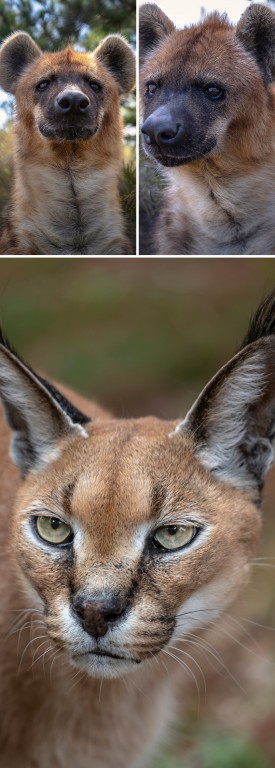The Eden Syndrome: A Comprehensive Approach to Apex Cat Rehabilitation
The Eden Syndrome is a specialized process designed to help apex cats transition from captivity to a more natural and autonomous life, while still residing within the safety of a sanctuary environment. This method, focused on restoring their wild instincts and behaviours, has been successfully implemented at Jukani Wildlife Sanctuary as part of SAASA’s broader conservation efforts.
- Behavioural Monitoring During Pre-Release
The rehabilitation begins with close observation of the apex cats while still in captivity. Their behaviours are monitored to assess their readiness for release into a more natural environment. These observations offer key insights into the animals’ physical and psychological preparedness. - Dehumanization of Apex Cats
A crucial part of the process involves reducing the cats' association with humans. This is vital for their survival and well-being. Caretakers follow strict protocols to ensure minimal interaction, allowing the animals to recondition their instincts and adapt to a more natural way of life. - Release into the Eden Area
Once the cats reach a certain level of dehumanization, they are released into a large, naturalistic area designed to encourage territorial and social behaviours. This space allows them to explore, establish dominance, and engage in species-specific activities. - Eliminating Human Interaction
Post-release, human interaction is drastically limited or completely eliminated. This enables the apex cats to adapt independently, forming natural relationships within their environment. Feeding occurs after dark, further minimizing human presence. - Anonymous Feeding Techniques
Feeding is done using anonymous methods to ensure the cats do not associate food with humans. The food is placed in designated areas at times when the cats are not present, fostering a more natural relationship with their surroundings. - Strict Human Code of Conduct
Both staff and visitors adhere to strict no-contact rules to maintain the integrity of the Eden Syndrome process. Any form of direct interaction, such as touching or hand-feeding, is strictly prohibited, ensuring the cats retain their wild instincts.
Benefits of the Eden Syndrome for Apex Cats
- Natural Behavioural Expression: After release, the cats quickly begin exhibiting natural behaviours like territorial marking and social structuring.
- Environmental Enrichment: Signs of stress diminish, indicating a high level of comfort in their environment.
- Social Structure: Apex cats establish natural hierarchies and engage in species-specific communication, ensuring a cohesive social structure within the sanctuary.
Visitor Experience and Conservation Impact
Visitors to Jukani Wildlife Sanctuary have the rare chance to observe apex cats behaving naturally. This experience not only leaves a lasting impact on guests but also deepens their understanding of conservation efforts.
The Eden Syndrome plays a vital role in providing apex cats with a forever home where they can live as naturally as possible. It is central to SAASA’s mission of offering these magnificent animals a second chance at life in an environment that respects their wild nature and ensures their well-being.



